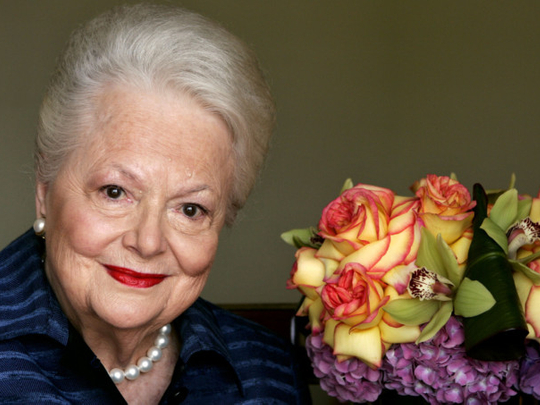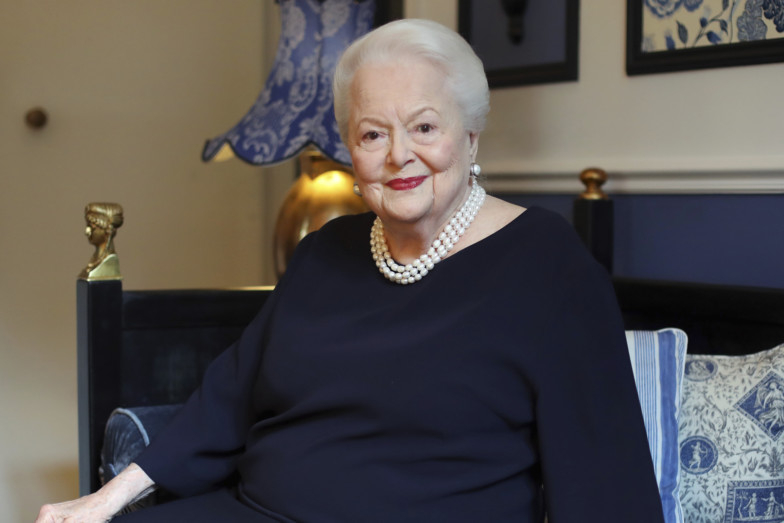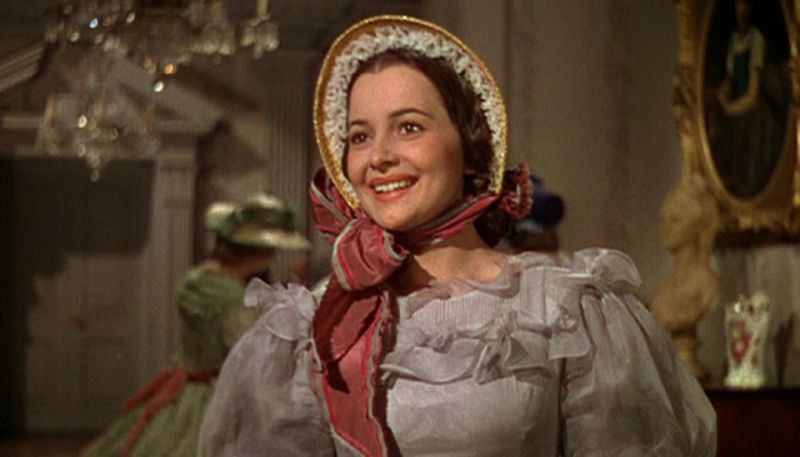
Oscar-winning actress Olivia de Havilland, who built her carer in the Golden Age of Hollywood, died aged 104.
According to reports, the two-time winner of the Academy Award for Best Actress, died peacefully in her sleep at her home in Paris, France on July 25.
De Havilland was the last surviving star from ‘Gone With the Wind’ and one of the last great stars of Hollywood’s bygone golden era.
The five-time Academy Award nominee came to embody the elegant glamour of the silver screen in the 1930s and 1940s, while portraying roles of the feisty heroine on screen.
However, even as her professional life thrived, her personal life saw many ups and downs, including a legal battle against a Hollywood studio and a secret feud with her equally famous sister, Joan Fontaine.
The 1939 box-office blockbuster ;Gone with the Wind' brought de Havilland wide acclaim for her role as the noble, long-suffering Melanie, starring opposite Vivien Leigh and Clark Gable in the US Civil War epic.
Her performance as love rival to the fiery Scarlett O’Hara, played by Leigh, led to de Havilland’s first Oscar nod for best supporting actress.

But she lost out to co-star Hattie McDaniel, who played the character of Mammy and became the first African-American to win an Academy Award.
“Playing a good girl was difficult in the 30s, when the fad was to play bad girls,” she once said in an interview. “Actually, I think playing bad girls is a bore. I have always had more luck with good girl roles because they require more from an actress.”
Screen siren

Her screen debut had come as Hermia in ‘A Midsummer Night’s Dream’ in 1935 after director Max Reinhardt spotted her in a local theatre production of the play.
She won wide acclaim for her role opposite swashbuckling actor Errol Flynn in ‘Captain Blood’ later the same year, and their on-screen chemistry persuaded studio bosses to cast her alongside Flynn in seven other movies.
De Havilland incurred the wrath of the bosses at Warner Bros., who at that time effectively owned their stars, by rejecting script after script.
In what was a shocking move for the era, she sued the studios to be released from her seven-year contract and won, in a far-reaching 1945 ruling which gave actors the right to choose their own roles and career paths.
During her court case, she was blacklisted for three years and unable to work, but her legal victory kickstarted her career.
The following year in 1946 she won her first Oscar for her portrayal of Jody Norris in 'To Each His Own', in an edgier role as an unmarried mother and her heartbreaking struggle to stay near to the child she could never acknowledge.
She won her second Academy Award for playing the socially inept spinster Catherine Sloper in 'The Heiress' in 1949.
She appeared in a few films in the 1970s and also did some television work in the 1980s. But she is said to have once pronounced: “The TV business is soul-crushing, talent-destroying and human-being-destroying.”
Romantically, De Havilland was linked to John Huston, James Stewart and Howard Hughes in the 1940s, but she married novelist Marcus Goodrich in 1946, with whom she had a son, Benjamin.
The couple divorced in 1953, and De Havilland later married French journalist Pierre Galante, with whom she had a daughter, Giselle, in 1956.
They later divorced but when Galante fell ill, she nursed him during his final days in Paris and remained in the French capital.
In 2018, de Havilland filed a lawsuit over the unauthorised use of her identity in ‘Feud: Bette and Joan’ against FX and Feud producer Ryan Murphy. The case was eventually thrown out.









